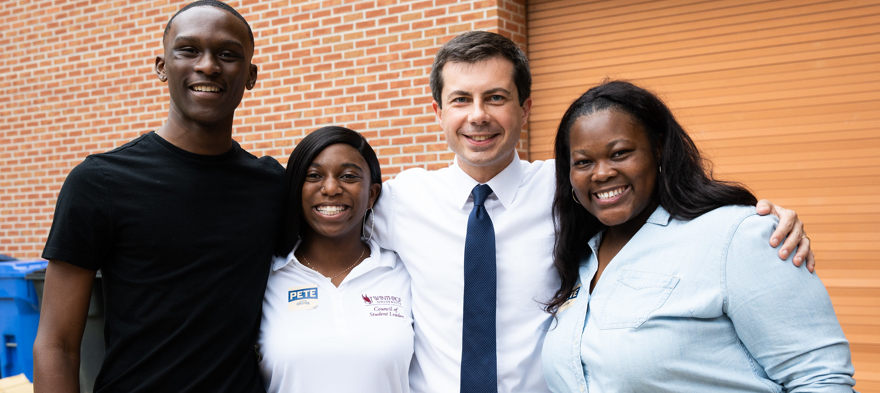
Where do Democratic candidates stand on public education? After last month’s Forum on Education, we know that the candidates are committed to increasing the federal investment in public education and ensuring that public education provides real opportunity for our most underserved students. The Forum was subtitled “Equity and Opportunity for All.” Surely, that is a vision we can all embrace.
According to the Center for Research on Education Outcomes at Stanford University, public charter schools in urban areas provide significantly higher levels of annual growth in both math and reading compared to other public schools, with the most significant gains coming to Black, Latinx and special education students. And, public charter schools reach underserved students at a higher rate than traditional district schools, according to Education Week. Based on this data, achieving “Equity and Opportunity for All” should include investing in high-quality, urban, public charter schools.
Yet, the public charter school community was not invited to the Forum. One-hundred charter school parents took time off work, traveled hours by bus and stood in the rain, hoping for an opportunity to ask the presidential candidates about their commitment to equity and excellence. They were not allowed in. Most candidates dodged any discussion of public charter schools, and why they should not be a part of an “Equity and Opportunity” agenda.
The role that public charter schools can and should play in fulfilling America’s promise to its children is a critical one. And [pullquote]we should take every opportunity to have a real discussion; one that includes the students, parents, alumni and teachers who are the heart of public charter schools.[/pullquote] Presidential candidates should not shy away from listening to and learning from these voices.
The truth is that there is a real opportunity for supporters of all public schools—district and charter—to come together to advocate for equity and opportunity. For example,
With more than 3 million public charter students (and one million on waiting lists), public charter schools are the schools of choice for many African American and Latinx students and families seeking a high-quality public education. [pullquote]Poll after poll reinforces the basic idea that voters—especially Black and Latino voters—not only support public education but believe that parents should have choices about the public education their children receive.[/pullquote]
“Equity and Opportunity for All,” is more than just a slogan. Presidential candidates should listen to the parents who choose public charter schools every day. And rather than pitting schools against each other, we should come together to support all public schools.
As Chief of Policy and Public Affairs, Richard leads the KIPP Foundation’s public policy, advocacy, marketing and communications efforts to grow the KIPP network and advocate for policies that make it easier for students to afford college and overcome other barriers to success.
The fight for educational equity has never been just about schools. The real North Star for this work is providing opportunities for each child to thrive into adulthood. This means that our advocacy...
Your donation will support the work we do at brightbeam to shine a light on the voices who challenge decision makers to provide the learning opportunities all children need to thrive.
Ed Post is the flagship website platform of brightbeam, a 501(c3) network of education activists and influencers demanding a better education and a brighter future for every child.
© 2020–2024 brightbeam. All rights reserved.